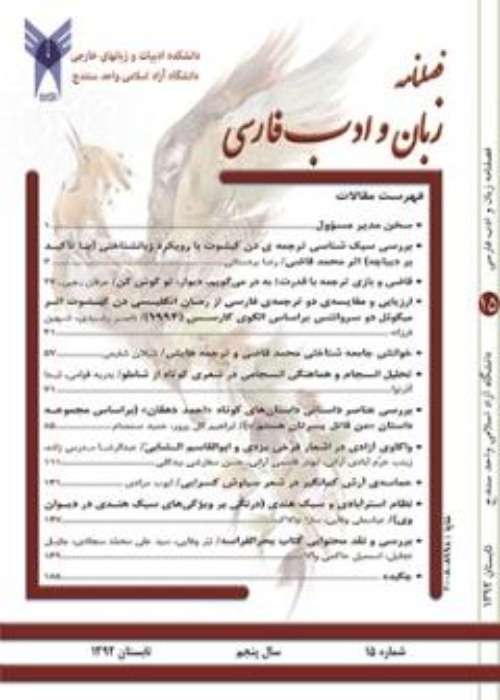The study and analysis of Qur’anic intertextuality relations of Nasir Khusraw’s Diwan based on Genette's theory
Intertextual analysis, which deals with the connection and interaction between texts and examines the similarities, differences, and influences of one text on other texts, has gained popularity in recent years in literary criticism and linguistics. According to this theory, texts and their speakers are mutually impacted and profit from one another's literary and intellectual sources, whether consciously or subconsciously. This theory proposes that texts and their speakers are mutually impacted and benefit from each other's literary and intellectual sources, whether consciously or subconsciously. In the realm of Persian literature, the Qur'an is one of the hypotexts that has long served as a reference and inspiration for poets and writers with varying viewpoints on its formal and semantic aesthetics. They have utilized Quranic principles and teachings to enhance the veracity and depth of their words. One of these poets is Nasir Khusraw, whose hypotext of inspiration for his Diwan is the Holy Quran. Using a descriptive-analytical technique and quoting library sources, an effort was made to examine the dimensions impacted by Nasser Khosrow from Quranic verses based on Genette's intertextual theory. This research demonstrates that in Nasir Khusraw's Diwan, intertextual explicit and its branches (words, phrases, short sentences, extra and descriptive combinations) are the most prevalent of Genette's intertextual relationships. Words are the most often employed intertextual method in these poems, among the numerous branches of intertextual explicit. Implicit intertextuality frequently follows explicit intertextuality. Among the different branches of this intertextual, intertextuality thematic is increasingly diversified compared to other types.
- حق عضویت دریافتی صرف حمایت از نشریات عضو و نگهداری، تکمیل و توسعه مگیران میشود.
- پرداخت حق اشتراک و دانلود مقالات اجازه بازنشر آن در سایر رسانههای چاپی و دیجیتال را به کاربر نمیدهد.



